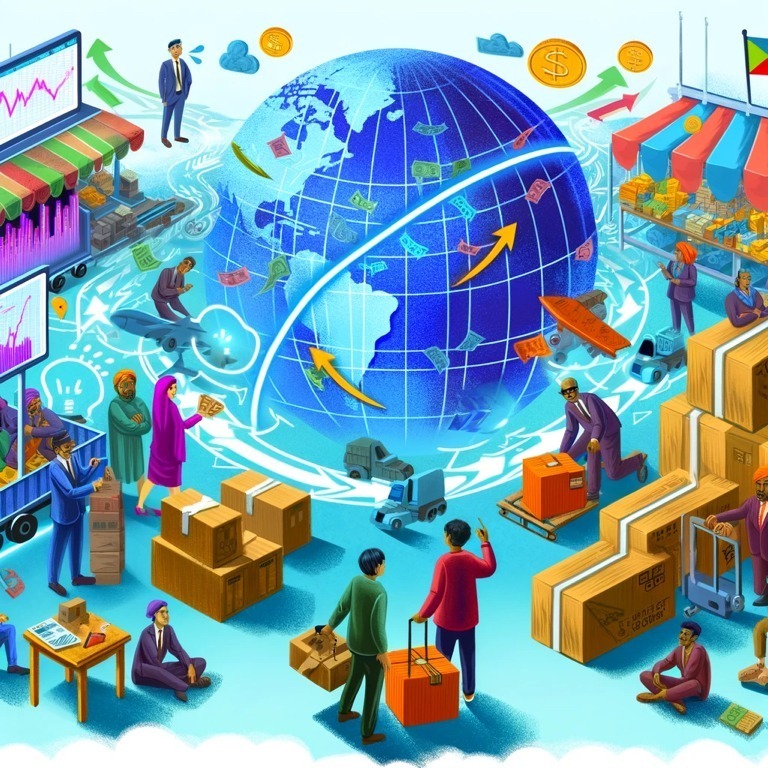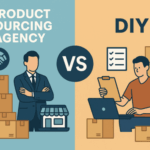Starting a new product line isn’t just about adding something new. It is a unique concept that will leave an indelible mark. But things aren’t as simple as they seem. Sourcing involves procurement of goods, components, and services. Even an established business can run into a variety of roadblocks during new product development and introduction, due in no small part to the sourcing of new products.
Here we’ll explore the complexities of this process. We’re unpacking the most common challenges and offering strategies to navigate them, ensuring that your product-sourcing actions are not only efficient but also yield high-quality products.
The Core Challenges of Product Sourcing
Normally, the process of sourcing a product is not as simple as a transaction or a series of transactions. It’s the result of a complex web of complications. In global product sourcing, for instance, challenges could vary from pricing and quality disparities to dissonances between supplier and buyer on a functional level.
i. Cultural and Communication Barriers
Cultural differences extend beyond simply speaking a different language. They can change the entire negotiation process, from how each party introduces themselves, to deliberating on contractual changes. In some cultures, decisions might involve more consensual agreement on the part of all stakeholders. This can produce lengthier negotiation processes.
Effective communication lies at the heart of a successful sourcing relationship. The results of miscommunication can potentially extend throughout business operations, from strategic decisions made with incorrect data to the destruction of a formal relationship.
In response to the risks, certain businesses opt for various solutions, including utilizing sourcing agents native to the country in which the supplier is based engaging product sourcing agencies or services, and global procurement services. These resources play a central role in bridging cultural and communication gaps in sourcing processes when a company wants to buy things from another country. For example, imagine a company in China wants to buy things from the United States, it would be hard for them to understand how people there speak and behave. However if the company works with a sourcing company in the USA, it can overcome the cultural barriers effectively. By leveraging the experiences of sourcing agencies or companies, businesses can effectively enhance their work efficiency and drive successful outcomes in global endeavors.
ii. Cost and Quality Control
Cost and Quality Control are important factors when a company decides to make or buy products. It is crucial to weigh cost against other aspects such as the quality of individual components, production time, and working conditions.
The quality of products directly affects a company’s reputation, so it is essential to have a strict line of quality control measures. Raw materials need to be chosen and inspected cautiously. How the product is manufactured and the process of packaging the final product are just as critical.
For instance, imagine a company that wants to buy t-shirts to sell in its store. They find a manufacturer that offers cheap T-shirts. But they later come to know that the material used is not good quality. If they buy those t-shirts and sell them to customers, they might get complaints about the shirts shrinking or tearing easily. This could harm the company’s reputation and make customers unhappy.
Companies must partner with a reputable product sourcing agency, sourcing manufacturers, or a strategic sourcing company. This will ensure that they source high-quality products.
When it comes to ecommerce product sourcing, businesses that are operating on platforms like Amazon, need to be extra careful. Furthermore, for corporate gift solutions, always partner with a reliable corporate gift supplier to ensure high-quality products.
iii. Supply Chain Resilience
Supply Chain Resilience is the backbone of any successful business. Ever imagine a company making phones, relying solely on one source for screens? If there’s a problem with that supplier, the company’s phone production could halt. However, if they are in touch with multiple product sourcing and procurement agencies, they can continue production despite issues with one supplier.
Depending on a single source to provide a key component means that a company’s entire product line can be shut down by any disruption in the supply chain. Diversity within the supply chain will not only bring in alternative sources in case of emergency, but it will also bring in resilience.
Additionally, accurate forecasting is also vital. It involves predicting customer demand for products. The ability to predict market trends and volatile consumer behavior means that businesses can adjust sourcing strategies in the nick of time to prevent themselves from being caught with overstock or looking down the barrel at a costly stock-out.
By partnering with a global procurement services or strategic sourcing company, business can improve their sourcing strategies based on market trends and consumer behavior, which in turn minimize the risks of overstock or shortages.
iv. Regulatory Compliance
It’s important to follow the rules when bringing goods from other countries. This can be time-consuming and complex. It’s important to stay familiar with local and international trade laws, as well as regulations, tariffs, taxes, and other legal requirements.
Ethical sourcing has become really important for businesses. Not only is it required by law, it’s also the right thing to do. Make sure that suppliers are following fair labor practices and environmental regulations. This helps companies build trust with people who care about these things.
Solutions to Overcome Sourcing Challenges
Dealing with sourcing challenges is part of a growing business, especially when working with various suppliers and sourcing manufacturers. Let’s look at some ways we can tackle these obstacles together.
i. Building Robust Supplier Relationships
Businesses need to develop partnerships with suppliers, whether they are product-sourcing agency, sourcing manufacturers, or strategic sourcing companies. Transparent communication and sharing a long-term vision can breed loyalty and commitment, which could lead to preferential treatment and better service.
Companies must also conduct regular audits to ensure their supplier is meeting the agreed-upon standards and provide them with feedback for improvement. This recurring evaluation process will lead to a constantly upward trajectory in the quality of your sourced products.
ii. Leverage Technology and Data Analytics
Utilize data analytics tools to accurately calculate the market’s demand and validate your sourcing and ordering processes. By making data-driven decisions, businesses will reduce the element of uncertainty and effectively be able to plan for the future.
In a similar vein, employ digital solutions to bridge geographical gaps and streamline communication processes. These platforms enable real-time collaboration, allowing for quicker decision-making and problem-solving.
iii. Quality Control Measures
Regular inspections and product testing are key facets of a stringent quality control mechanism. Using third-party quality assurance services can provide an impartial assessment of the product, greatly reducing the risk of subpar products hitting the market.
iv. Proactive Approach to Compliance
Finally, adopt a mindset of continuous improvement with your suppliers. This could include communicating areas in which they could improve, sharing best practices, and working together to develop a better version of the product. Work in partnership with legal personnel to ensure compliance with the extensive legal frameworks related to product sourcing.
Regularly conduct training for your sourcing and procurement teams on new regulations and compliance measures. It’s a continuous educational process that ensures your business remains on solid legal ground.
Final Thoughts
Product sourcing is a continuous journey. It’s about staying vigilant, adapting, and taking a proactive approach. If you understand the challenges and use the strategies here, then sourcing products can be fun instead of hard work. Finding good products isn’t just about picking the cheapest supplier. It’s also about making strong connections and following the rules.
From building strong relationships with suppliers to the integration of technology and QC every step needs dedication. Following each product sourcing process, reflect upon the lessons learned and weave them into the core operating practices of your business.








